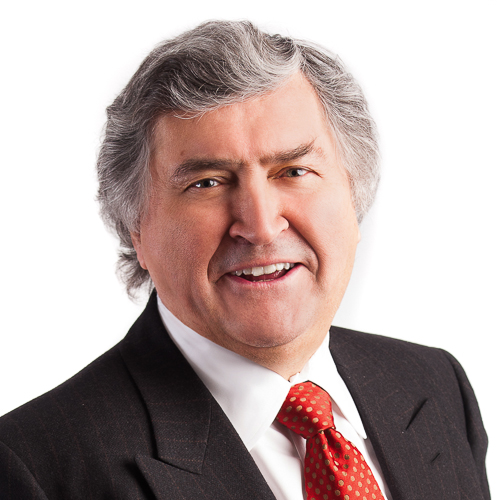Freedom of religion has usually fared poorly in United Nations deliberations. However, in a little noticed move, the Security Council, the UN’s highest body, passed a resolution earlier this month affirming the importance of religious freedom and thereby created a new reporting mechanism. This is one of several recent moves to embed religious freedom within international deliberations.
One reason why religious freedom has not received due attention internationally is that many leaders wish to play to domestic constituencies with animus against particular religious groups, especially minority ones. Others, like the Chinese government, have an animus against religion itself. Also, many in Western countries that want to defend religious freedom often cannot see any point of general UN proposals and committees. After all, if Iran has been chair of the United Nations Commission on Nuclear Disarmament and Saudi Arabia has chaired the Commission on the Status of Women (CSW), then how can such resolutions be taken seriously?
But to many less influential countries in the world these resolutions mean a great deal and so the incremental accretion of such affirmations can provide direction and limits on future actions in the international arena. What may at first appear to be merely bureaucratic shuffling may have real consequences.
And, while these processes are slow, even glacial, there is real progress.
As I reported elsewhere, on May 17, 2023, the International Religious Freedom or Belief Alliance, a growing association of several dozen countries committed to promoting religious freedom, released a significant statement on the current worldwide persecution of Christians. It argued that religious freedom is still comparatively neglected as a human right and that the ongoing persecution of Christians is still relatively unknown.
Italy has recently appointed a Special Envoy for Freedom of Religion. Deputy Prime Minister and Minister of Foreign Affairs, Antonio Tajani, announced the appointment of Davide Dionisi, the former head of the foreign desk of L’Osservatore Romano, the daily newspaper of the Vatican City State, which reports on the activities of the Holy See. Tajani emphasized that “the Government supports with determination the importance of interreligious dialogue and favors the construction of a shared action that puts the human person, his dignity and respect for fundamental rights at the centre.”
Another development, one within the UN itself, is an initiative sponsored by the Governments of the UK and the United Arab Emirates (UAE). On June 14, 2023, at an international gathering to promote religious tolerance hosted by the UAE, James Kariuki, UK Deputy Permanent Representative to the UN, tabled a resolution for the Security Council on the importance of religious freedom.¹ The Emirates’ support meant that the proposal was sponsored both by a Western power and an influential Muslim country.
Ambassador Kariuki emphasized that:
“Freedom of religion or belief (FoRB), including the freedom not to have a religion, is a fundamental human right . . . And yet, religious minorities have time and again been specifically targeted, including in conflict. This was a key finding of the report commissioned by the former UK Foreign Secretary Jeremy Hunt from the Bishop of Truro.”²
The Security Council adopted the UK/UAE proposal, which also requires the UN Secretary General to produce an oral report on Freedom of Religion and Belief related threats to international peace and security. The first report is due on July 14, 2024, and will become an annual event.
Of course, the resolution had to be adapted or, less politely, “watered down,” to accommodate the interests of the countries represented. It moves between religious freedom and the “importance of tolerance, equality, coexistence, dialogue, pluralistic traditions, mutual respect and the diversity of religions and beliefs,” and it castigates “hate speech.” All these terms can be ambiguous and even repressive.
But its conclusions include that it:
15. “Encourages the Secretary-General to carry out and include in relevant reporting lessons learned and best practices on participation of religious groups, institutions, and leaders, including women, as well as local communities, in the mediation of peace agreements and their implementation, in initiatives directed to conflict prevention, resolution, reconciliation, reconstruction, peace building, and in addressing the root causes of conflict.”
16. “Requests the Secretary-General to provide an oral briefing to the Security Council by 14 June 2024, in a public meeting under the agenda item ‘Maintenance of international peace and security’….”
This is a small but important step in further establishing religion, and thereby religious freedom, as a vital factor in international affairs.
Endnotes:
- The Deputy Permanent Representative is a senior diplomat with the rank of Ambassador, acting as alternate to the Permanent Representative across the full range of UN business. This includes representing the UK in the Security Council and Economic and Social Council, and working on issues such as security and conflict, human rights, sustainable development, and climate change. The DPR is also responsible for the daily management of the Mission. https://www.gov.uk/government/people/james-kariuki
- The UK Government commissioned a report from the (Anglican) Bishop of Truro on the current persecution of Christians, which report appeared in 2019. The Bishop produced a wide-ranging report which the UK government committed itself to implement and has been following through on that commitment. https://www.gov.uk/government/publications/bishop-of-truros-independent-review-of-fcdo-support-for-persecuted-christians-assessment-of-recommendations-implementation.







 Sponsor a student for Christianity & National Security 2024
Sponsor a student for Christianity & National Security 2024